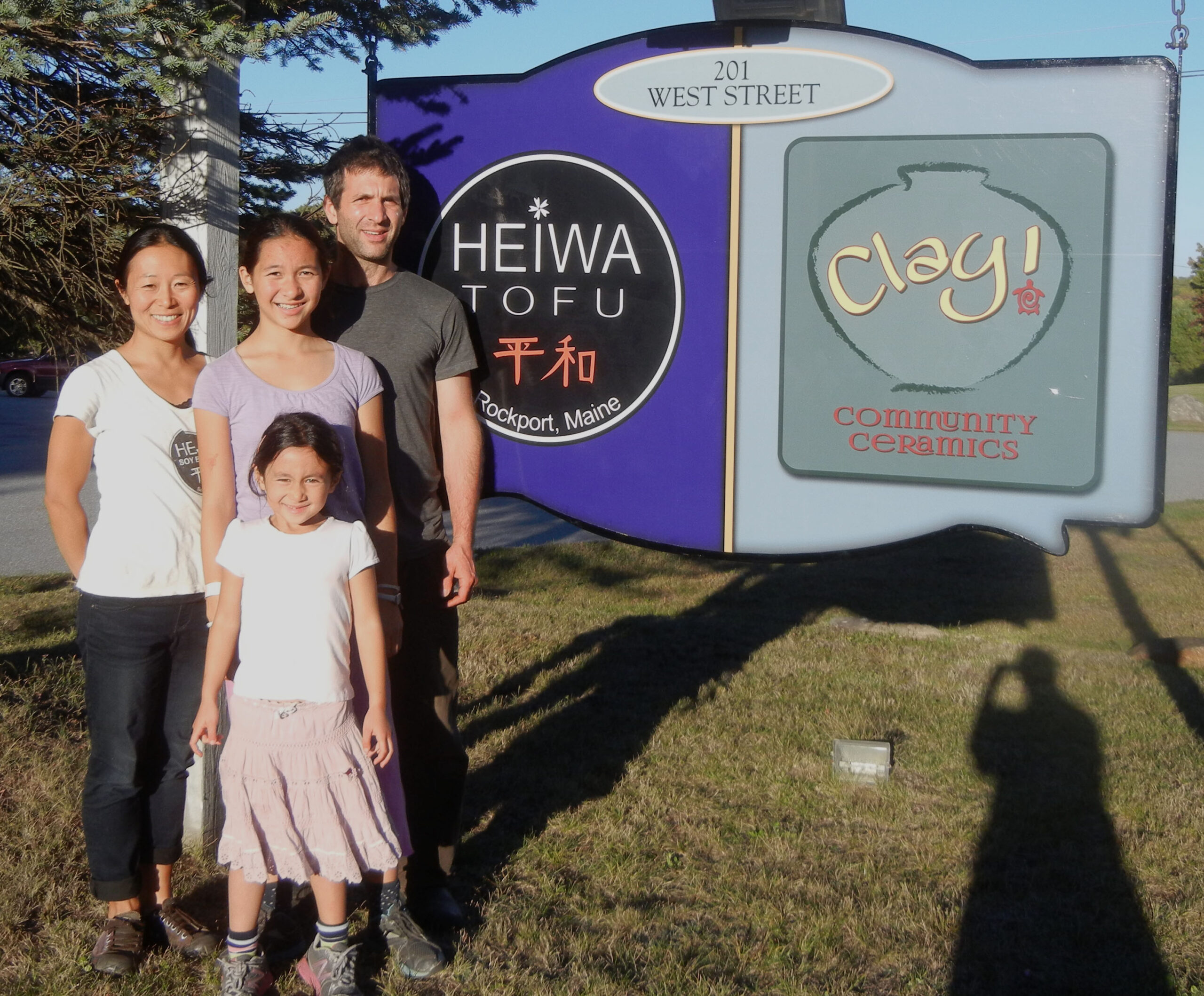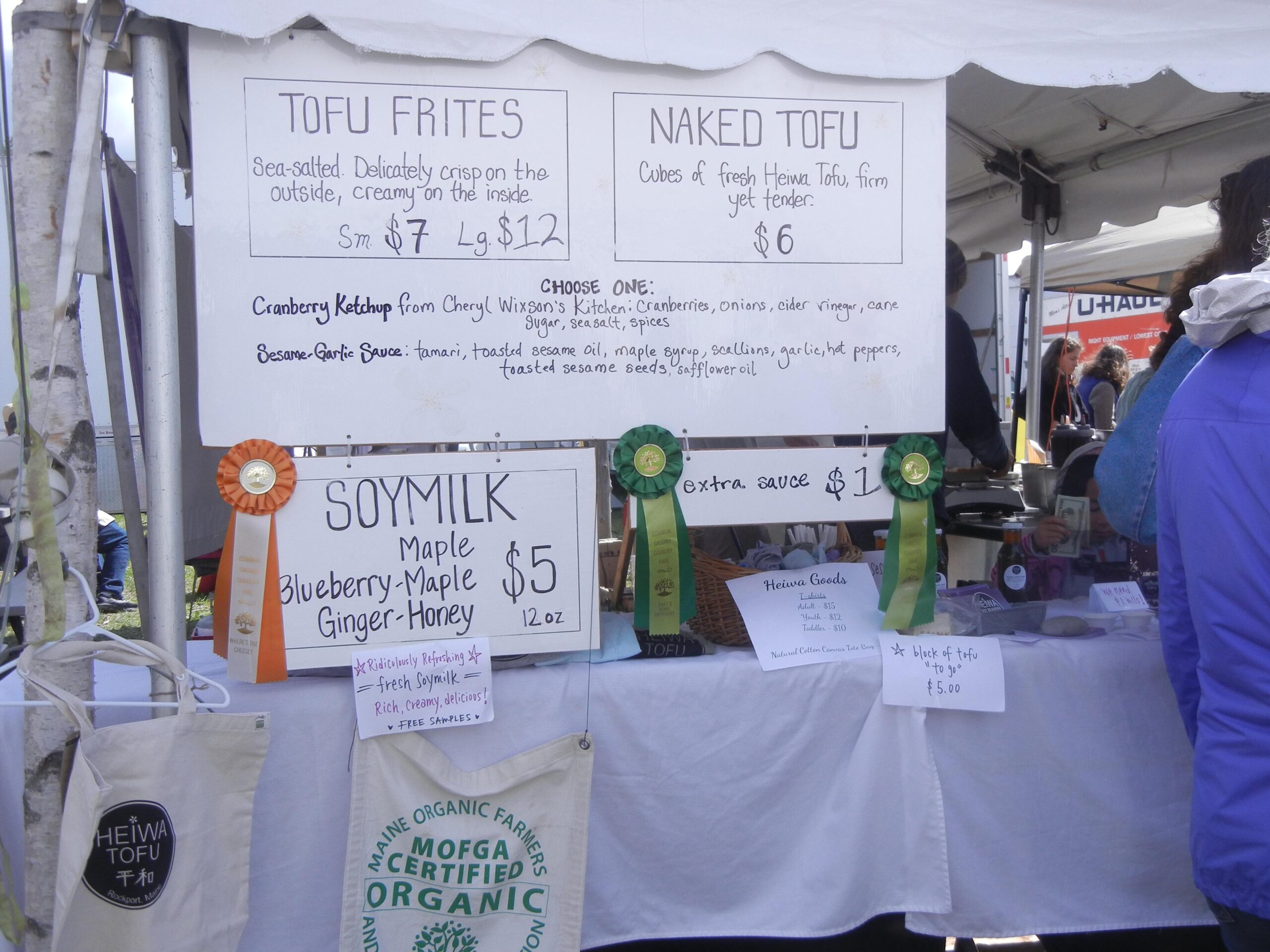Hot take, cold dish: tofu at Bowdoin
March 3, 2017
From Honolulu tofu to tofu stir fry to the small cubes available at the salad bars, the tofu in the dining halls is ever present. Produced by Heiwa Soy Beanery, the tofu has been a staple of Bowdoin Dining Service’s repertoire for two years.
In 2015, Bowdoin switched from SoyBoy, a national company, to Heiwa Soy Beanery. According to Ken Cardone, associate director and executive chief of Bowdoin Dining Service, this move represented one of the many efforts the school has put forth to use locally sourced, fresh food.
Heiwa Soy Beanery, owned by Jeff Wolovitz, is a local tofu production business based in Rockport, Maine. Founded in 2008, it supplies to Bowdoin and other major colleges in Maine, including Colby and the University of Maine branches.
“When I arrived on campus many years ago, Bowdoin already had a long-standing tradition of using local food—everything from blueberries to seafood to produce. It’s been part of the culture for so many years,” Cardone said.
While local food can be more costly, according to Cardone, the advantages of locally sourcing food are the decreased transportation costs and increased quality.
“We’re fortunate that we can buy things like grains that are shelf-stable, [a palate a time] since we use so much of it—that helps lower our costs and do away with some of the shipping expense,” said Cardone.
“This way we’re looking at a product that is produced in our state and is high quality,” said Cardone, “We’re promoting the local industry, which is so important today.”
In effort to continue locally sourcing food, Bowdoin turned to Wolovitz.
Wolovitz, who was disappointed by the quality of tofu he was finding in his local natural food markets, decided in the early 2000s to start making the product himself. The tofu he produces uses non-GMO soybeans from nearby farms.
“One thing I notice about the two products is that the local tofu, when we use it in certain dishes, holds up so much better,” said Cardone.
“It’s all about that texture—it’s firm, but it’s still tender and moist. Most of the commercial tofu, if it’s firm, tends to be dry and hard. Finding that perfect balance of firmness and tenderness was hard to build,” said Wolovitz.
Wolovitz, a former high school science teacher, said he got into the business to pursue a passion. While his background is in physics and astronomy, he wanted to be involved in more earth-based activities after college.
“I spent three years working on farms, organic farms, vegetable farms and some animal farms. After three years of that, I really didn’t have any land or money,” said Wolovitz. “I sort of left that behind and thought that I could become a science teacher [and] have my summers off when I could farm away all summer.”
After teaching briefly despite not having a background in education, Wolovitz found that he was unable to spend his summers farming as productively has he had hoped.
“The summer goes by so fast,” he said.
“What I started to do was look for niches that I could fill. Something, a product, that was already being consumed within the state or region, but wasn’t being produced within the state. I kind of attacked it from that direction and stumbled upon tofu,” said Wolovitz.
He was inspired to grow soybeans by another high school science teacher with whom he lived in the ’80s and ’90s.
“He was getting ready to move and had a whole bunch of equipment left in his barn that he needed to get rid of. That kind of sealed the deal for me,” Wolovitz said.
He now runs the business alongside his wife, Maho Hisakawa. Hisakawa, who was born in Japan, uses the business to help her connect back with her culture. According to Wolovitz, Hisakawa plays two important roles: part-time employee and advisor.
“[Hisakawa] helps with representing the brand, taking on some special projects, and making some of the bigger decisions,” said Wolovitz.
Because the business is family-run, Wolovitz includes his two daughters in their trips to Camden for the farmer’s market.
“They love it,” said Wolovitz. “They love being part of that community there. They know all the vendors, their different friends, and they know which one will give them free samples of maple sugar or cheese.”
Wolovitz emphasized the need to balance family and business.
“I work 12-hour days most days of the week. Even when I’m not here, I’m still thinking about [the business], because there is so much to figure out,” he said.
While the business is integral to the family’s life, one of the struggles, according to Wolovitz, is finding a balance between work and family.
“The dinner table is not always the right time to talk about [the business]. It really comes down to boundaries and setting those distinctions between business and not business,” said Wolovitz.
At home, Wolovitz and his family cook their own tofu recipes.
“We live a busy life, so we’re always looking for good, simple, but nutritious recipes,” said Wolovitz.
“These days we’ve been really enjoying a tofu salad—basically egg salad, but with tofu.”
A few of the recipes on their website are originals. The tofu toast was developed by Hisakawa during her pregnancy with their first daughter, even before the tofu business was developed.
“People are always asking us for new ways to use tofu,” said Wolovitz.
Cardone similarly reflected this.
“I think when you put local product out there, people have more of a tendency to taste, and that is a plus in itself.”

 Courtesy of Heiwa Tofu
Courtesy of Heiwa Tofu Courtesy of Heiwa Tofu
Courtesy of Heiwa Tofu
Comments
Before submitting a comment, please review our comment policy. Some key points from the policy: